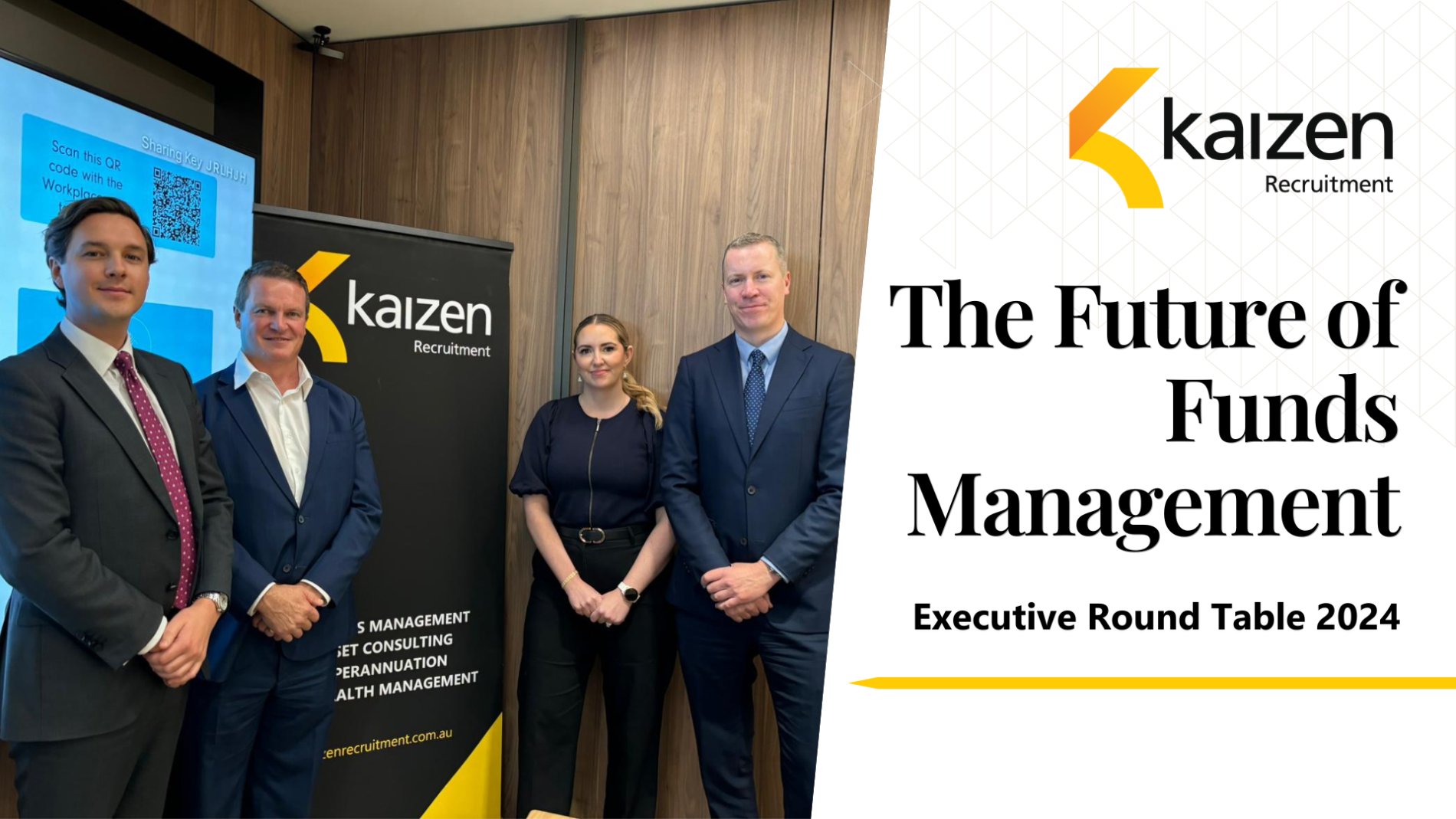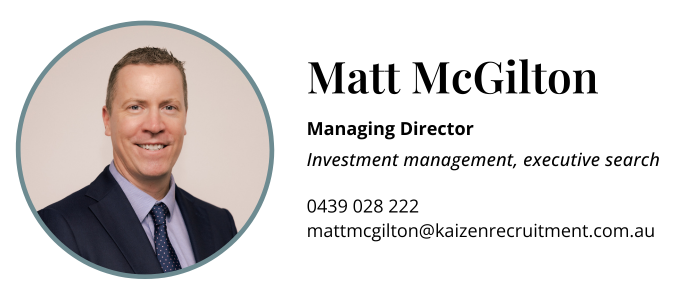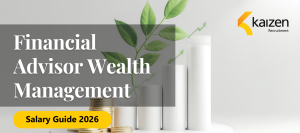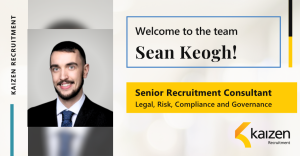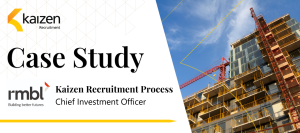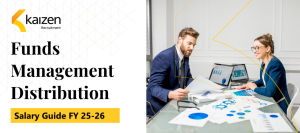The Future of Funds Management – Executive Round Table
Kaizen Recruitment recently hosted its exclusive funds management CEO round table in Sydney.
This event was designed to address some of the most pressing challenges faced by leaders in the investment management industry. The round table, moderated by Brett Jollie, brought together executives from prominent firms including UBS Asset Management, Fidelity International, Australian Ethical, Janus Henderson, AQR Capital, Platinum, and Alliance Bernstein.
This gathering facilitated a rich exchange of insights on the current and future landscape of the investment management sector and was a rare opportunity for executives of different firms to unpack key industry themes and challenges amongst their peers in a close-knit and collaborative environment under Chatham House Rules.
Key Themes and Discussions
The last few years have been difficult for active managers worldwide, and Australia’s funds management industry has not been immune.
These trends collectively highlight the dynamic nature of funds management, as firms adapt to meet evolving needs and preferences of investors in an increasingly complex market environment.
Current Industry Challenges
The consensus among attendees was that the last three years have been amongst the toughest the industry has faced. Actively managed funds have experienced negative net flows, exacerbated by fee pressures and the rising popularity of Exchange-Traded Funds (ETFs).
While globally the industry manages a staggering US$123 trillion in assets, it has been grappling with shrinking profit margins. The fee structures are nearing their lower limits, necessitating strategic adjustments to maintain profitability and shareholder satisfaction.
Read more on the Cost-Out Business Model
Strategic Adaptations
Relationship Management: Successful fund managers are expected to pivot towards developing comprehensive relationships with asset owners and super funds, offering multi-strategy investment solutions rather than focusing on individual strategies. This holistic approach could provide more stable and integrated pricing models.
Technology and AI: Many participants acknowledged the increasing role of artificial intelligence in enhancing operational efficiency. AI is becoming a critical tool in data analysis and reporting within investment management. Some organisations mentioned trialling their own internal custom-built and designed AI solutions to lend a competitive edge in an increasingly challenging market.
Market Dynamics
Consolidation Trends: The superannuation industry continues its consolidation trend which will impact other sectors in the investment value chain, including funds management. As this flow-on effect is felt across Australia, we will likely have fewer fund managers in years to come.
Insourcing by superannuation funds has obvious impacts on fund managers. It was noted that this theme had already played out previously in the US, and we are now seeing a partial unwind of insourced investment teams in those markets.

While Australia is seen as an attractive market due to market size, it also has a reputation as being one of the toughest markets due to the heightened competition and fee pressure from super funds. Some global fund managers are choosing to avoid Australia for this reason. On the flip side, the executives in attendance agreed that if you can succeed with an investment product in Australia, you can probably succeed anywhere.
Future Outlook
Product Innovation: The rise of active ETFs, managed accounts, and retirement solutions are seen as key areas of growth and innovation. These products offer new ways to package intellectual property and meet the evolving needs of investors.
Many executives in attendance highlighted that the niche or unique products they owned have been a tangible differentiator between them and their increasingly homogenous competition. They pushed that if your fund does something exceptionally well, that you are well known for, there will always be a need for interesting and bespoke products in investment portfolios thereby creating longevity in Australian fund managers for years to come.
Technological Integration: The integration of AI is anticipated to redefine operational frameworks, enhance efficiency, and provide deeper analytical insights. The executives of the funds in attendance agreed that the need for businesses to invest in exploring the utilisations of AI within their organisation was critical if they wanted to remain relevant and compete in the future for market share.
Conclusion
Our funds management CEO round table provided valuable insights and fostered a collaborative environment for industry leaders to discuss strategic directions.
We extend our appreciation to all those who joined us at our round table discussion. Kaizen Recruitment is genuinely grateful to be able to act as a conduit in the market as a trusted external partner to help foster ideas and connections amongst some of Australia’s leading investment organisations. The insights gleaned through such events allow us to deeply consult our clients and candidates on key industry trends, challenges and opportunities. We look forward to facilitating the next round table soon.
Get in Touch
Based in Melbourne and Sydney, Kaizen Recruitment specialises in financial services recruitment across funds management, wealth management, superannuation, investment consulting and insurance. If you’d like to discuss candidate career drivers and the current state of the market within the financial services recruitment landscape, feel free to reach out to us with your details below.
Like what you see?
Please feel welcome to join
Kaizen Recruitment’s mailing list
